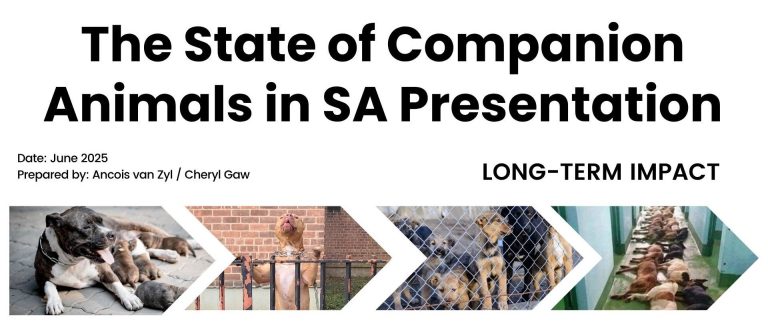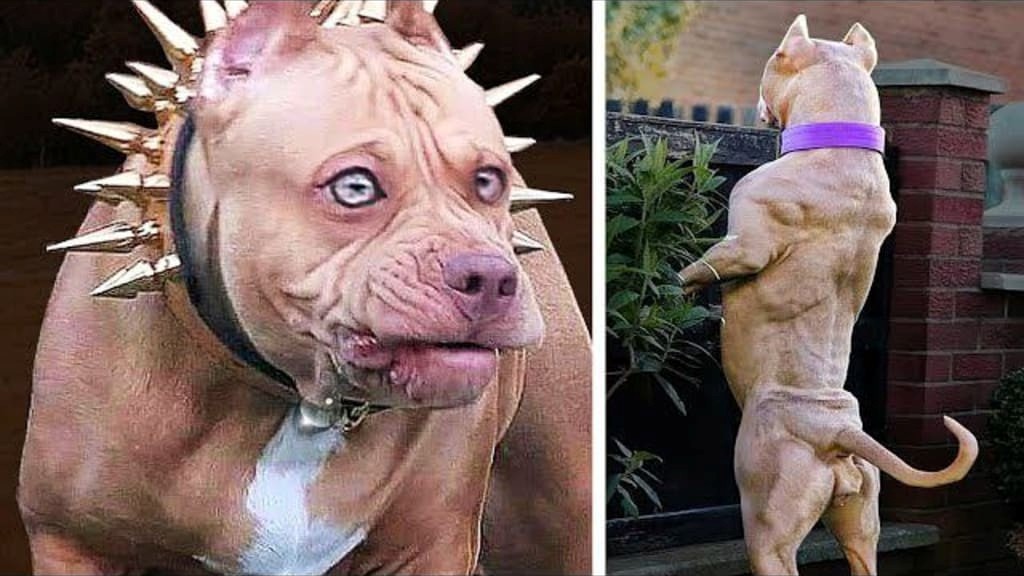
The State of Companion Animal Overpopulation and the Call for National Reform
Ancois van Zyl (The Paw Company) and Cheryl Gaw (Pug Rescue South Africa) presented the State of Companion Animal Welfare in SA to the Portfolio Committee of the Department of Agriculture at Parliament in Cape Town. The presentation was met with the seriousness it warrants, and a constructive way forward was discussed.

The Paw Company and Pug Rescue South Africa extend heartfelt thanks to the Honourable Members of Parliament who attended and engaged in our presentation to the Portfolio Committee on Agriculture, Land Reform and Rural Development on 3 June 2025 in Cape Town. The full briefing of the meeting is available on the Parliamentary Monitoring Group (PMG) platform.
This presentation was not a standalone effort—it marked the culmination of seven years of sustained advocacy and collaboration. In 2023, we hosted consultative sessions across Gauteng and the Western Cape, including online platforms, to gather insights from animal welfare organisations across South Africa. These engagements confirmed what we already knew: South Africa faces an urgent and intensifying companion animal overpopulation crisis, and a regulatory vacuum lies at its heart.
The Crisis: Why It Matters
South Africa is grappling with a massive and unsustainable population of cats and dogs, largely due to unregulated breeding, irresponsible ownership, and uncontrolled trade. The consequences are wide-ranging and deeply troubling:
- A sharp increase in stray animal populations
- Growing incidents of dog attacks and disease outbreaks
- Shelter closures due to financial strain and overcrowding
- Widespread and emotionally devastating euthanasia of healthy animals
- An unfair burden on NGOs and welfare organisations, who receive no government support yet are expected to carry out core public health functions
As the country’s economic challenges deepen, more animals are surrendered while donations to shelters plummet. Without formal intervention, the crisis will worsen, affecting not only animals but also communities, public health systems, and environmental sustainability.

Our Proposal: From Reaction to Regulation
In response to the national crisis, our team has worked with veterinarians, legal experts, and policymakers to draft a set of national regulatory proposals, submitted to the Department of Agriculture, Land Reform and Rural Development for consideration. These proposals aim to:
- Tackle the root causes of overpopulation
- Establish legal requirements for responsible breeding, trading, and ownership
- Shift the system from reactive crisis management to proactive control and accountability
Our initial focus is on companion animals—dogs and cats—but future regulation should extend to other species as needed. The Department has acknowledged receipt of the proposed draft regulations. Any components selected for adoption will undergo the formal public participation process following constitutional and legislative procedures.
The Case for National Reform
A proactive national framework will provide:
- Better protection for communities from stray animal-related health and safety threats
- Relief to overburdened shelters and veterinary facilities
- Formal support for ethical breeders
- Tools to eliminate exploitative practices and black-market trade
- Increased transparency and consumer protection
- Stronger alignment with the global One Health Initiative, which recognises the link between animal, human, and environmental health
This shift is not only ethically necessary—it is strategically urgent.
A Shared Responsibility
Animal control is a governmental responsibility, yet most of the current work is done by under-resourced private rescue organisations and NGOs. These groups are reaching a breaking point. Relying on donations to carry out what should be state-supported public health services is not sustainable. It is imperative that the government steps in with a national, enforceable framework that supports collaboration and ensures long-term success.

The Way Forward
We sincerely thank everyone who contributed to this initiative and look forward to working with Parliament, government departments, civil society, and communities in a robust and inclusive public participation process. Real reform is now within reach. With courage, commitment, and cooperation, we can build a humane, effective, and accountable system that protects animals, serves communities, and safeguards public health.
The time to act is now.
Overview
The Portfolio Committee convened to receive a presentation by Pug Rescue South Africa on the escalating crisis of companion animal welfare in South Africa. The organisation provided an in-depth analysis of systemic challenges, legislative gaps, and policy recommendations concerning the overpopulation and mistreatment of dogs and cats. The Committee engaged robustly with the content, highlighting the urgent need for reform and improved intergovernmental coordination.
Key Issues Raised in the Presentation
1. Overpopulation Crisis
Pug Rescue South Africa described South Africa’s companion animal crisis as an “unseen tragedy.†The country faces a severe overpopulation problem among dogs and cats, resulting in:
- More than one million euthanised cats and dogs annually (Rescue Rehab SA).
- Approximately 1,000 animals are euthanised daily (SPCA data).
- Overwhelmed shelters and veterinary services.
- Environmental and psychological consequences of mass euthanasia.
- Increased disease transmission and dog attacks.
Contributing factors include:
- Irresponsible breeding and lack of regulation.
- Informal pet trade operating without tax or veterinary oversight.
- Absence of municipal bylaws on breeding, animal ownership, and enforcement.
2. Challenges in Shelter Management
- Only 67 SPCA branches are operational nationally, and many are underfunded or closing.
- An estimated R183 million annually is spent on cremation alone.
- Welfare organisations like Pug Rescue SA receive no government support, raising substantial monthly funds independently.
- Shelter personnel experience trauma and burnout due to constant euthanasia procedures.
3. Unregulated Breeding and Trade
- Breeding remains an unregulated and informal business, often driven by profit and tax evasion.
- Animals are commonly sold without vaccination records or vet clearance.
- Lack of traceability and accountability facilitates abuse and neglect.
- The use of dogs for hunting in rural areas raises public safety and disease concerns.
4. Legislative and Enforcement Gaps
- No national statutory body exists to oversee companion animal welfare.
- Municipalities lack the capacity to regulate breeders or enforce existing laws.
- Current legislation is outdated and fails to address systemic causes.
Legislative and Policy Recommendations
Pug Rescue South Africa presented comprehensive proposals to strengthen animal welfare governance:
Key Legislative Proposals:
- National companion animal welfare legislation to standardise regulations across provinces and municipalities.
- Creation of a statutory body to regulate breeders and enforce compliance.
- Mandatory registration for breeders, microchipping of all companion animals, and a national registry.
- Sterilisation requirements for all animals sold or adopted, with breeder accountability until completion.
- Restricted sales to breeder premises to ensure traceability.
- Special permits for ownership or sale of “power breeds†(e.g. Pitbulls).
- Enforcement measures include fines and license revocation for non-compliance.
Broader Recommendations:
- Public awareness campaigns on responsible ownership and the benefits of sterilisation.
- Microchipping with breeder and owner data embedded to enable enforcement.
- Regulation of online sales and advertising.
- Proactive inspection and registration drives, including a tip-off hotline.
- Reform of breed standards, phasing out flat-faced breeds such as pugs and bulldogs due to genetic health issues.
Committee Engagement and Feedback
Members commended the quality and urgency of the presentation. Key points raised included:
- Mr CF Smit (DA) called for stronger legislative implementation and suggested microchipping and registration systems to improve animal traceability.
- Mr WA Aucamp (DA) expressed concern over legislative enforceability and supported stricter breeder regulation.
- Mr A Mngxitama (MKP) raised questions about balancing animal welfare with human poverty and proposed measures to prevent exploitation by profit-driven breeders.
- Ms NA Ndalane (ANC) highlighted the need for awareness campaigns and asked about the role of government in partnering with NGOs.
- Inkosi RN Cebekhulu (IFP) cautioned that informal rural breeders may evade regulation and stressed the risk associated with hunting dogs.
- Mr A Trollip (ActionSA) questioned whether certain breeds (e.g., pugs) should exist and asked whether animals are protected under the Consumer Protection Act.
- The Chairperson raised concerns about the closure of SPCA branches and the increase in dangerous dog breeds.

Departmental Response
Mr Mooketsa Ramasodi (DG, DALRRD)
- Acknowledged the value of the presentation.
- Confirmed that DALRRD is currently developing the Animal Welfare Bill.
- Emphasised that integration of new proposals requires careful legal and economic analysis.
Dr Mike Modisane (Chief Director)
- Noted overlap between proposed regulations and existing laws under the Animal Improvement Act.
- Cautioned against regulatory conflicts with pedigree breeding societies.
- Supported sterilisation as a population control strategy and discouraged abortion as an option.
Dr Anndrea Yelliah (Deputy Director)
- Confirmed that stakeholder engagements have taken place, but not all draft proposals were submitted.
- Stressed that companion animal issues will be addressed through secondary regulations under the new Bill.
- Explained the role of the Compulsory Community Service (CCS) programme, which contributes to sterilisation and vaccination efforts.
- Acknowledged implementation challenges with microchipping and outdated legislative tools.
- Confirmed the Department’s intention to include animal sentience and domain in the new Bill.
- Described interconnected human and animal health concerns, referencing the One Health Initiative.
Civil Society Responses to Departmental Remarks
- Ms Gaw reiterated that breeders must be taxed and registered like any business.
- Stated that microchipping should be central to enforcement and must include both breeder and owner data.
- Stressed that animal welfare services in poor communities benefit both animals and humans.
- Called for the government to establish public channels for reporting tax non-compliance by breeders.
- Ms van Zyl emphasised the need for a government-managed microchip registry and a tip-off hotline.
- Proposed voluntary registration with microchip providers as a first step.
- Called for national legislation to override ineffective or absent municipal bylaws.
- Supported the establishment of a statutory body to regulate breeders and welfare organisations.
Follow-Up and Proposed Action Items
- Quarterly reporting from DALRRD on the progress of the Animal Welfare Bill and draft companion animal legislation was proposed.
- Inclusion of the Agricultural Research Council in work on breed genetics and welfare.
- Enhanced public-private partnerships and economic impact assessments prior to legislation rollout.
- Integration of all stakeholder feedback into the Animal Welfare Bill.
- Consideration of a Treasury-supported hotline for unregistered or non-compliant breeders.
Conclusion
The Portfolio Committee concluded that South Africa is facing a deep and multifaceted companion animal crisis. Pug Rescue South Africa’s presentation exposed severe shortcomings in legislative oversight, enforcement capacity, and intergovernmental coordination. Members expressed strong support for systemic reform through national legislation, breeder regulation, and institutional accountability.
The Department acknowledged the urgency of the issues and committed to considering the proposals as part of the Animal Welfare Bill currently under development. It was agreed that a structured plan of action, supported by quarterly updates and collaborative stakeholder input, is essential to addressing the crisis.
The Chairperson thanked all participants and adjourned the meeting.